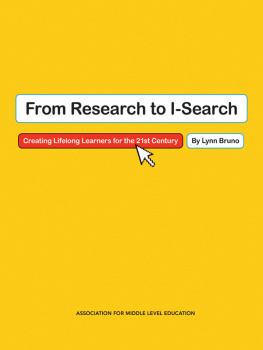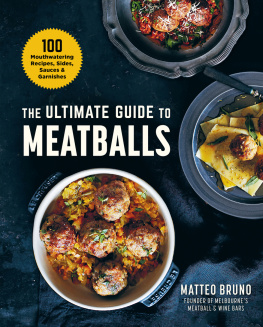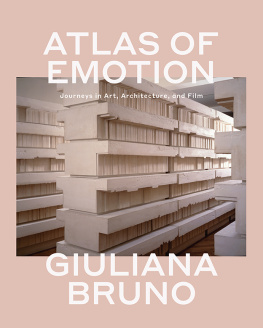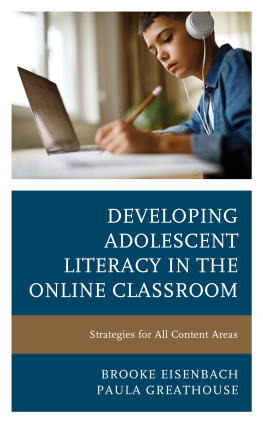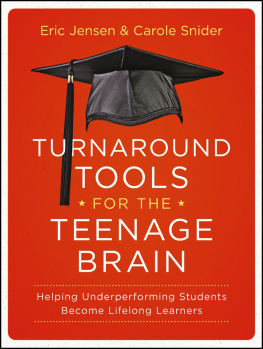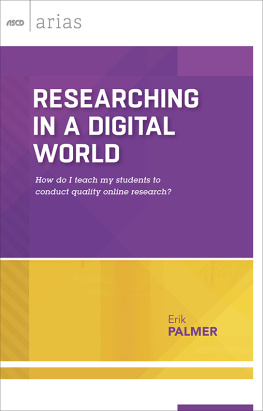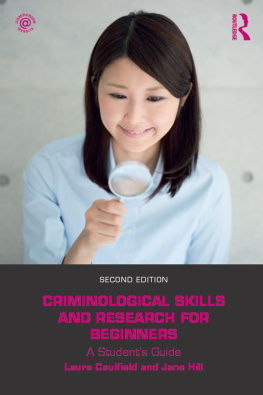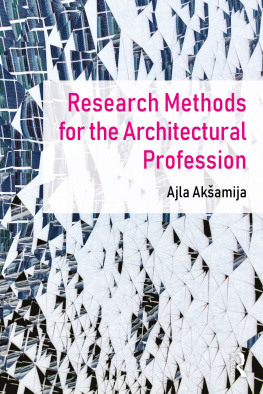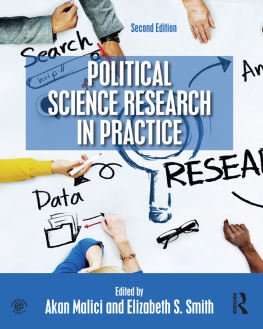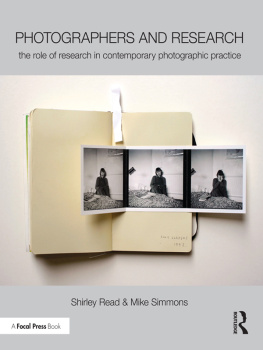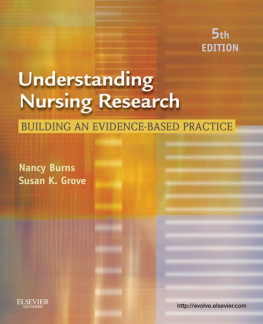
Copyright 2014 by Association for Middle Level Education.
All rights reserved. No part of this publication may be reproduced or transmitted in any form or by any means, electronic or mechanical, without permission in writing from the publisher except in the case of brief quotations embodied in reviews or articles. The materials presented herein are the expressions of the author and do not necessarily represent the policies of the Association for Middle Level Education.
AMLE is a registered servicemark of the Association for Middle Level Education.
Printed in the United States of America.
ISBN: 978-1-56090-265-2
Library of Congress Cataloging-in-Publication Data
Bruno, Lynn Quackenbush, author.
Research to I-search : creating lifelong learners for the 21st century / Lynn Quackenbush
Bruno.
pages cm
Includes bibliographical references.
ISBN 978-1-56090-262-1
1. English language--Composition and exercises--Study and teaching (Middle school) 2.
Report writing--Study and teaching (Middle school) I. Title.
LB1631.B7715 2014
428.00712--dc23
2013041450
DEDICATION
Dedicated to all my students who never cease to amaze me!
ACKNOWLEDGEMENTS
I would like to thank my editor, Carla Weiland, whose unexpected invitation to write a book both thrilled me and scared me to death! Without her keen eye, talent, and expertise, it would have never happened. Nor would it have happened without the courage of the members of MiddleTalk who dare to raise the tough questions, fearlessly pursue the answers, and have for years challenged me to think deeply about my pedagogical practice. My journey with the I-Search paper would have never begun had my colleague, Jen Power, not directed me to Ken Macrories original work when I came to doubt the value of traditional approaches to teaching research. In addition, I would be remiss if I did not also acknowledge the contributions made to this manuscript by two truly passionate and dedicated teachers, Ali Tannenbaum and Steve Wiemeler, who explored with me ways to adapt the I-Search process to accommodate time constraints faced by all classroom teachers. And of course, it goes without saying, I thank Bob, my husband, for his unflinching belief in me. However, my deepest gratitude goes to my students who challenge me everyday to become a better teacher by reminding me to be a good student.
Foreword
This book came into my life at exactly the time I needed it.
In my Humanities 7 course, my students design their own units together. They come up with massive tons of questions (hey, theyre middle schoolers!), search for themes and connections, and watch as groups of questions begin to clump together and call out for their attention. Within each unit, we write a theme question to bring focus to our inquiry, choose two books, one for a read-aloud and one for a group read, design a number of group activities, and pursue and eventually share individually-chosen learning journeys including research, essay-writing, and presentations.
Over time, though, I found my students struggling with the research phase of the project. Some would quickly find a simple answer to their question and rest there, others would have no clue where to start, and still others would spend much more time following interesting but irrelevant tangents (a necessary if not altogether welcome byproduct of having access to the huge wealth of interconnected information that is the Internet) than investigating their actual question. This year, in a blatant and transparent attempt to maintain focus, I retitled the project their Focus Question Essay. Intriguingly, while the quality of the Focus Questions themselves rose, the quality of research remained as random as ever. As my students began designing their second unit, I realized I needed some sort of technique to help guide them more specifically in their research so that the projects truly became a learning journey for all of them and not just a privileged few.
It was about that point in time that AMLE contacted me and asked me to write an introduction for this book. I had heard of I-Search papers beforefrom Lynn, through our interactions in listserves but had inexplicably not taken the hint and run with the idea. This time, I was primed, and I sat down and devoured the book in one sitting. This is perhaps more a measure of my excitement than my perspicacity, as this is a book where each detail matters deeply. However, the potential of I-Search, as Lynn has thought it through and implemented it so effectively with her students, is enormous, and I have no doubt that my students, when they begin designing their next unit, will profit from the changes I will be incorporating.
Lets be very clear about this, thenLynn Bruno is a master teacher. In taking us into not just her classroom but also her mind, she shows us an incredible array of factors that go into everything she does. I like to tell my students I usually have at least one good reason and often two or three for everything I do. With the design of, rationale for, and implementation of I-Search papers, Lynn makes me look like Im winging it. Even better, she does so in a way that makes it utterly and completely accessible. And still better yet, she does so in a way that enables teachers to take her ideas and personalize them for their own classes, students, and styles. With all of this happening, I-Search becomes much more than an academic exercise. It becomes nothing less than a way to enable students to pursue their passions while learning and absorbing a multitude of skills and growing in knowledge, competence, and confidence.
Let your own learning journey begin.
Bill Ivey
Middle School Dean
Stoneleigh-Burnham School
Contents
Preface
The genesis of this book was a conversation that took place among middle level teachers in reaction to a video entitled Teaching in the 21st Century. From that conversation evolved a thoughtful discussion of the interplay between knowledge acquisition, learning theory, and pedagogical practice and how these elements impacted our ability to prepare our students for their future. It did not matter that each of the individuals involved in this conversation taught different content areas. The focus was how we evolve as educators to insure our students are equipped to succeed in a world that has yet to be. What role do we play in our students learning? How much autonomy do we afford them in determining what and how they learn?
After reflecting on subsequent conversations of this professional learning community, I suggested that the I-Search unit was an example of the perfect marriage between a traditional approach to teaching and one that might better serve our students today given the world they will be inheriting. All teachers, regardless of their discipline, could use research, already a common instructional strategy of the PLC, to integrate 21st century skills into their teaching to prepare their students for success.
What I offered my colleagues was a shift in perspective. Rather than placing just one more thing on their plates, preparing our students for the 21st century was not adding to our curriculum, it asked us to adjust and shift our focus and perspective. By teaching the processes involved in learning and placing as much value on the mastery of those skills as teachers have historically placed on the products of learning, we can develop students lifelong learning skills. Giving students more autonomy, not less; providing an environment in which all students are safe to take risks; where the learning process is valued, not the grade; these are the changes necessary if our students are to embrace the world in which they live. By adopting certain instructional changes to the process of research, all teachers, no matter what subject they teach, can begin to develop the lifelong learning skills their students will need.
Next page
